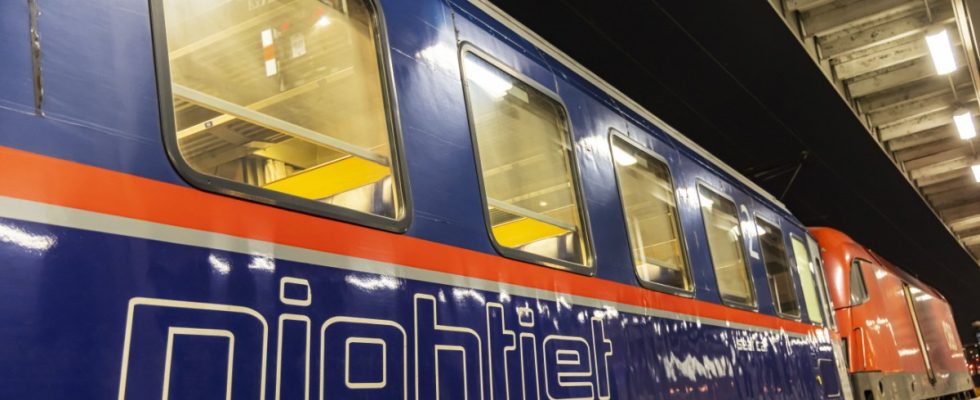Deutsche Bahn would not be able to cross the Alps by train without the help of the Austrians. If you board the ÖBB Nightjet 295 at Munich Central Station shortly after 8 p.m., you will be over the Brenner before midnight and can order a caffè around half past nine the next morning in a bar near Roma Termini station and bite into a cornetto alla crema . The 13-hour journey is a classic among night train fans. The connection has now been partially interrupted for three months – and of all times in the summertime. Trains will run non-stop from next Sunday.
If you wanted to criticize Deutsche Bahn, you could joke that they have, well, overslept the trend towards night trains that has been going on for several years. But that’s not entirely true. Because it was a conscious decision to withdraw from the night train business, that was in 2016. The dilapidated rolling stock and the gigantic losses incurred by the night trains, which were hardly used to capacity, prompted the company to do so. Even then, experts considered the step a big mistake – and indeed, after a short time, the railway corrected itself, albeit hesitantly.
From then on, she relied on the cooperation with the Austrian ÖBB. The maintains night train routes between 25 major European cities, many of them in Germany. In addition to this, Deutsche Bahn has expanded its range of services at night, but only with normal ICE and IC trains that do not have couchette or sleeping cars.
With the timetable change in December of this year, further improvements are to follow. DB and ÖBB announced this on Tuesday at a joint meeting in Berlin. Nightjet connections from Berlin and Vienna to Paris and Brussels are new. Initially, they will be driven three times a week, and then daily from autumn 2024.
New Nightjets will operate on two existing routes – Hamburg-Vienna and Hamburg-Innsbruck. They can travel at speeds of up to 230 kilometers per hour and offer more comfort than previous night trains, for example individual cabins in couchette cars. In the course of the coming year, the trains will also be used on other routes.
DB and ÖBB want to expand the offer during the day: There should be a new ICE connection Hamburg-Berlin-Nuremberg-Vienna. In the future, trains between Frankfurt, Stuttgart and Innsbruck will run daily and not just at weekends. In addition, a long-distance train will run every hour on the Munich-Salzburg route during the day and every two hours between Munich and Innsbruck. DB and ÖBB also promise to use new trains.
Traveling by train across borders in 2023 is complicated
“The trend towards rail is unbroken. More and more people in Germany and Austria are relying on the climate-friendly train to travel to the neighboring country,” says DB Marketing and Sales Board Member Stefanie Berk. Between the two countries, the number of passengers has increased by 40 percent in the past five years.
Despite a constant stream of new offers, mobility researchers complain that the potential of international rail transport is far from being fully utilised. One reason for this: traveling by train across borders in Europe will still be complicated in 2023. There is no platform jointly operated by the European railway companies through which all connections can be booked. Help is provided by websites run by private bloggers who try to bring order to the confusion of the many night train offers. However, the booking is usually made via the systems of the national train companies. Travelers have to laboriously click through the menus. As with Deutsche Bahn, it is often not even possible to see at first glance what the cross-border ticket costs.
All roads lead to Rome, they say. Because of the difficulties with the train, the most frequently used route from Germany is still: the plane.

